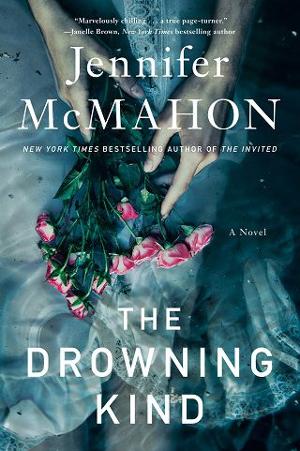Chapter Twenty-Six
chapter twenty-six
August 20, 1930
Lanesborough, New Hampshire
We’ve made two more trips to the springs. When we stop giving Margaret the water, her health declines immediately. As long as she consumes a small amount daily, she does very well. She’s got a healthy appetite, is growing, has a lovely complexion, and when Will listens to her heart and lungs, he can detect no abnormalities. Will cannot explain how it is possible that the water helps our girl, but no longer denies that it is indeed the water keeping her alive.
We made both trips in the daylight, on lovely summer days, packing a picnic and rucksacks full of empty jars and bottles.
As we drove along, I told myself, I am Mrs. Monroe. My husband and I are on an outing on a lovely summer day with our infant daughter. We have packed a picnic. I have made us ham salad sandwiches and a jar of ice-cold lemonade. We have tarts for dessert.
The springs were waiting for us. Expecting us. That’s how it felt. We found our way easily each time and did not have to stop to ask for directions. We’ve started to recognize all the landmarks along the way: the run-down farmhouses, the fields, the leaning stone walls, the closed-up sawmill.
The grass has grown up, overtaking the paths. And the rose garden, untended, has gone wild; the vines reaching out, escaping the cage of trellises, filling the air with a sweet, heady scent.
Come closer, the garden seems to say. But I can’t bring myself to. I’m afraid of what I might see there in the heart of it; of what might be waiting on the bench inside the overgrown gazebo.
On our last visit, Will saw me looking at the garden, suggested I might pick some flowers to bring back home.
“I couldn’t possibly,” I said, taking a step back.
And wasn’t I sure then, that just for an instant, I saw the shadows in the gazebo shift as though someone was hiding in the rosebushes? I turned to Will, wondering if he had seen it, too.
“A shame, really,” he said. “All that beauty going to waste.”
We filled our containers with water, and all the while I felt as though we were being watched.
And there was indeed something watching us. Just at the edge of the woods, I saw a flash of color. “Look!” I cried. It was one of the peacocks. He gave a screech and retreated back into the trees.
Will left us for a few days. He said he needed to go to Saratoga on business. He’d spent days in his study, making columns of numbers, drawing sketches. When I asked him what on earth he was up to, he only said he was playing with an idea.
It was all very mysterious.
Margaret and I went and played bridge, and the ladies cooed and fussed over her, took turns holding her, said she was absolute joy. “And such a beautiful child,” Myrtle said. “Like a fairy baby.”
I said nothing of my nightmares.
After three days, Will returned in wonderful spirits with gifts: a pair of sturdy leather boots for me and a tiny sweater for Margaret. “For our new lives out in the country,” he told me. His face was flushed, and he was all but bouncing with excitement.
“I went to Saratoga to meet with Benson Harding,” he said.
“Mr. Harding?” I could scarcely believe it. I felt my throat tighten as I said his name, remembered him and Eliza moving through the dining room at the hotel, greeting each guest, looking so splendid and handsome in their fine clothes.
Will nodded. “The poor man. He’s in a terrible state. I told him I was interested in buying the land where the hotel was. The springs. I asked what his price would be, and he suggested we play a game of poker. If I won, the springs would be mine. If I lost, I would walk away and forget all about the springs. ‘We shall leave it to Lady Luck,’ he said.”
“A game of poker?”
“Five-card draw. And Lady Luck did indeed smile upon me, because I was dealt a royal flush. Benson Harding had a pair of twos. The springs and the twenty acres of land around them, they’re all ours.”
My heart hammered in my ears like crashing waves. “But that can’t be legal, can it?”
“It’s entirely legal. We went to see a lawyer. I’ve got the title and deed. The land is ours, Ethel.” He reached into his bag, took out the papers, and showed me.
Will looked so pleased with himself, so happy. I tried to mirror his joy, but a knot of fear and apprehension began to grow like a newly kindled fire.
He threw his arms around me and led me in a little dance right there in the kitchen. My legs moved stiffly as I tried to follow along and match his steps.
“I’ve been drawing sketches for the house we’ll have built. A great stone house. Like the castle you dreamed about living in when you were a little girl!”
He reached into his bag once more, pulled out a neatly sketched drawing of a large stone house with big leaded-glass arched windows, a slate roof with high peaks. Sparrow Crest, he’d written at the bottom.
“It’s lovely,” I said, kissing his cheek, giving him the best smile I could muster. Then I excused myself, went into the bathroom, and pricked myself seven times with a pin. Blinking my tears away, I saw that the dots formed the rough shape of a house. I tried to rub them away, but only succeeded in staining the house red.
 Fullepub
Fullepub 



